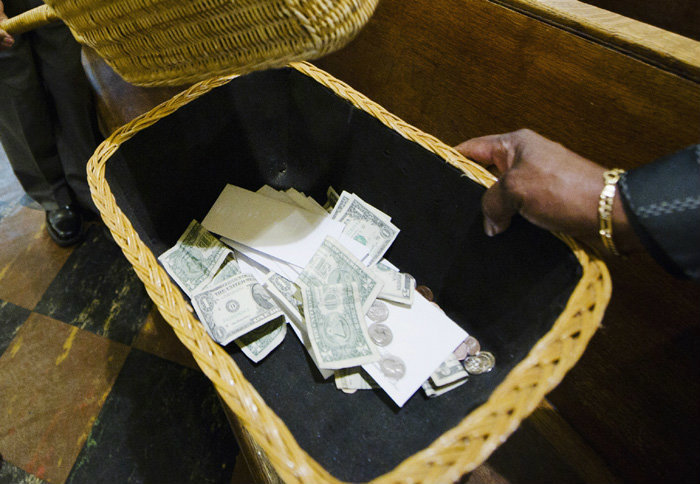Only half of American households donated to charity in 2018, a 2 decade low: report
Drop in donations to religious organizations outpaces decline in giving to secular groups

A new report reveals that only half of American households give to charity, the lowest share in two decades. Additionally, data shows that the average amount of donations given to religious organizations has decreased at a faster rate than those given to their secular counterparts.
Indiana University's Lilly Family School of Philanthropy released a report this month titled "The Giving Environment: Understanding Pre-Pandemic Trends in Charitable Giving." The report is described as the "first in a series of reports on 'The Giving Environment'" that will "dive deeper into these issues by presenting results from focus groups, experiments, and survey research."
The 27-page document features "data on declining US donor participation" as reflected in its Philanthropy Panel Study as well as other analyses. In 2018, for the first time in the history of the Philanthropy Panel Study, just under half of Americans gave to charity.
The PPS, a biennial panel of between 7,000 and 9,000 Americans, began tracking Americans' charitable giving patterns in 2000. At that time, 66% of American households reported that they donated to charity.
The share of American households that donated to charity reached a record high of 68% in 2002 before dropping to 67% two years later. After remaining steady at 65% in 2006 and 2008, the percentage of households that donated to charity continuously dropped beginning in 2010. The figure reached a low of 49.6% in 2018.
At the same time, the average amount of money American households have given to charity has also declined.
In 2018, American households gave an average of $1,280 to charity, the lowest amount since the PPS first asked Americans about their charitable giving habits.
In 2000, American households gave an average of $1,790 to charity. That number rose to a record of $1,866 in 2004 before steadily declining to a low of $1,480 in 2014. The figure rose slightly in 2016 before falling again in 2018.
In addition to asking if particular American households gave at least $25 to charity in a given year, the PPS asked participants if they donated to religious or secular organizations.
The data collected over time illustrated that donations to religious organizations are decreasing faster than their secular counterparts.
In 2000, 46.5% of American households donated to religious charities. By 2018, that share had dropped to 29.0%. The average amount of money given to religious causes also declined in that period, from $1,107 in 2000 to $771 in 2018.
PPS data shows that donations to secular charities also declined over the course of two decades. In 2000, 55.2% of American households donated to secular organizations.
"This number remained between 55 percent and 56.8 percent through 2008 after which the share of households donating to secular causes began dropping, reaching a low of 41.6 percent in 2018," the report explains.
The average amount of money donated to secular charities fell from $684 in 2000 to $509 in 2018.
In 2020, as the world grappled with the coronavirus pandemic, Americans as a whole donated a record $471 billion to charity, according to an analysis conducted by Giving USA.
The Indiana University report concluded that "The Great Recession of 2008 (December 2007 to June 2009) substantially affected whether people donate to charity and how much they donate, but the trends did not slow or reverse once the economy had recovered from the recession."
"PPS data explain that a little over a third of the decline in giving from 2000 to 2016 can be attributed to a drop in income, wealth, and home values," the report adds. "At the same time, societal issues, such as inequality of income and rates of social mobility, have impacted households, particularly in communities of color."
Additionally, the document cites a decline in trust of philanthropic institutions among younger Americans as a possible cause of the drop-off in charitable giving.
Specifically, in 2002, nearly one-fourth of Americans under 30 said that they trusted charitable organizations. By contrast, just 19% of young Americans said the same in 2014.
Other possible reasons for the decline in charitable giving mentioned in the report include "declining trends in empathy … compassion … and interpersonal trust."
Ryan Foley is a reporter for The Christian Post. He can be reached at: ryan.foley@christianpost.com




























